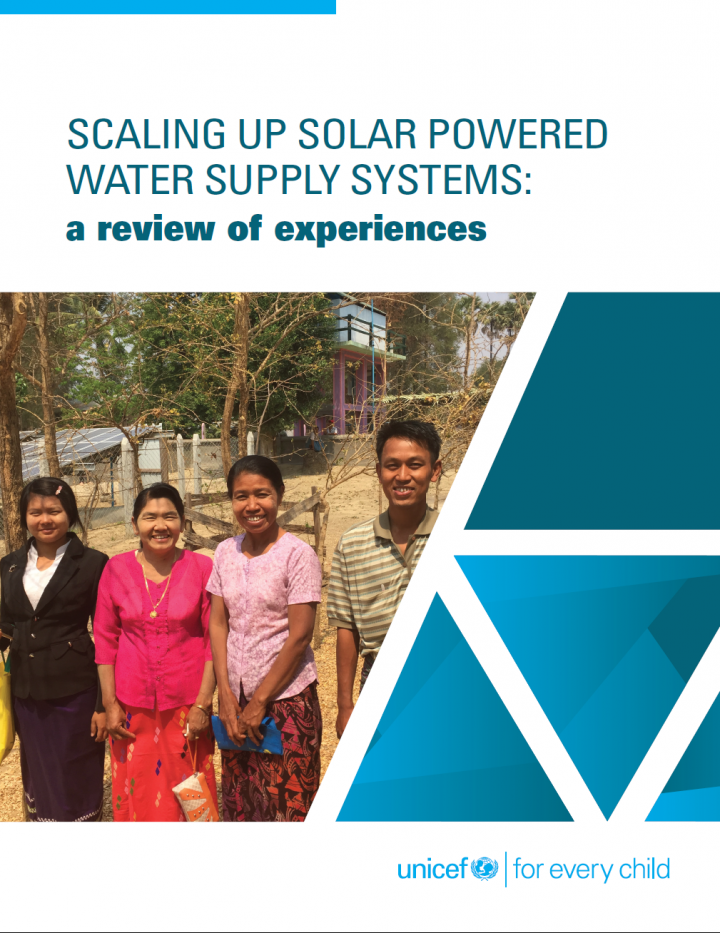Scaling Up Solar Powered Water Supply Systems - a review of experiences
Bamford, E., Zadi, D. (2016)

Published in: 2016
Pages: 28
Publisher:
UNICEF
Author:
Bamford, E., Zadi, D.
Uploaded by:
SuSanA Admin
Partner profile:
common upload
2499 Views
36 Downloads
Over the past few years, UNICEF has been exploring new and innovative approaches to water supply, placing
an emphasis on systems which are affordable, scalable, environmentally sustainable and climate smart. Solar
powered water systems have the potential to meet all of these criteria. The systems can also help provide a
higher quality service to multiple communities through the use of small piped water schemes and therefore play
a key role in helping to accelerate the achievement of the Sustainable Development Goal (SDG) on water and
sanitation.
Globally, 35 UNICEF Country Offices are using solar powered water systems in their programmes. As the price of solar panels decreases and the systems become increasingly popular with partners and beneficiaries, it has
become vital to assess the progress made so far.
The Solar Powered Water System assessment was carried out in four countries; Nigeria, Mauritania, Uganda and
Myanmar and was supported by a global UNICEF country office survey and literature review. The assessment aims to take stock of the progress made so far, particularly in terms of programming and the long-term sustainability
of systems. It will also provide key lessons to consider when moving forward.
Overall, the assessment found that when correctly sited and dimensioned, solar powered water systems are a
sustainable and effective method of providing safe water to communities. Low day-to-day running costs combined
with long-term durability mean that solar powered systems are now becoming financially competitive,
particularly in comparison to motorised systems. The systems can also provide an important water storage
buffer for climate adaptation purposes and additionally help reduce the carbon footprint of the water sector.
Bibliographic information
Bamford, E., Zadi, D. (2016). Scaling Up Solar Powered Water Supply Systems - a review of experiences. UNICEF
Filter tags
Case studies in other formats English North America Politicians and local decision makers Practitioners















